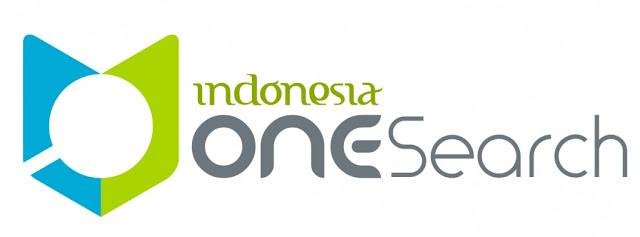Pengembangan LKPD Berbasis Pendekatan Scientific Pada Tema 7 Subtema 1 Pembelajaran Bahasa Indonesia Untuk Siswa Kelas III SD
DOI:
https://doi.org/10.31004/innovative.v2i1.2964Keywords:
thematic, Indonesian language learning, LKPD, ADDIEAbstract
This study aims to produce a product in the form of Student Worksheets based on a scientific approach in Theme 7 Sub-theme 1 Learning Indonesian for third grade elementary school students that are valid and practical. The development research method uses research and development (R&D) with the Analysis, Design, Development, Implementation, Evaluation (ADDIE) model. Data collection techniques used include small groups, validation questionnaire sheets, and student response questionnaires. The subjects in this study were 6 students of class III SD Negeri 81 Palembang. Based on the results of the study, it can be concluded that the LKPD developed in this study had valid criteria by experts in terms of content, construct and language aspects with an average percentage score of 90%. From the results of the calculation of student response questionnaire data on product trials, it was found that the average percentage of student scores was 90% so it was said to be practical.Downloads
References
Afkar, F. I., & Hartono, R. (2017, Juni). Pengembangan LKPD dengan model pengembangan 4D pada materi mitigasi bencana dan adaptasi bencana. jurnal pendidikan geografi, 2-138.
Chonga, V, D., Sallimah dan Aicheongc, P, I. Using an Activity Worksheet to Remediate Students’ Alternative Conceptions of Metallic Bonding. American International Journal of Contemporary Research.3(11): 39-52. 2013.
Depdiknas, (2008). Panduan Pengembangan Bahan Ajar. Jakarta: Departemen Pendidikan Nasional
Djamarah, S. B. (2014) Guru dan Anak Didik dalam Interaksi Edukatif. Jakarta : Rineka Cipta
Hake, R.R. 2002. Relation of Individual Student Normalized Learning Gain in Mechanies with Gender, High-School Physics, and Pretest Scores on Mathematics and Spatial Visualization. Submitted to the Physics Educations Reseacrh Conference, Boise, Idaho;August.
Hosnan. 2014. Pendekatan Saintifik dan Konteksual dalam Pembelajaran Abad XXI. Bogor: Ghalia Indonesia.
Isjoni. 2007. Integrated Learning. Pendekatan Pembelajaran IPS di pendidikan Dasar. Bandung: Falah Production.
Kemendikbud. Konsep Pendekatan Scientific, Badan Pengembangan Sumber Daya Manusiam, Pendidikan dan Kebudayaan dan Penjaminan Mutu Pendidikan. Jakarta. 2013
Muslimin, Perlunya Inovasi Dalam Pembelajaran Bahasa dan Sastra Indonesia, Jurnal Bahasa, Sastra dan Budaya, Vol.1 No 1, 1-8, 2014.
Prastowo, A. (2014) Pengembangan Bahan Ajar Tematik Jakarta: Kencana Prenada Media Group.
Rakhmawati, D., Prasetyo, A. P., & Rahayuningsih, M. (2013) Pengembangan lembar kerja siswa berbasis ekosistem. Unnes Journal of Biology Education, 1-2.
Subhani, A., & Agustina, S. (2018). Pengembangan Lembar Kerja Spatial Thinking to Problem pada Program Studi Pendidikan Geografi, Jurnal Geodika, 44-45.
Sugiyono. (2010). Metode penelitian Pendidikan pendekatan kuantitatif, kualitatif dan R&D. Bandung : Alfabeta.
Sani, A., Ridwan. 2014. Pembelajaran Saintifik untuk Implementasi Kurikulum 2013. Jakarta: Bumi Aksara.
Sari, A. P., & Lepiyanto, A. (2016) Pengembangan LKPD berbasis pendekatan Scientific Approach Siswa SMA kelas X pada materi Fungsi. jurnal pendidikan biology, 42.
Setyosari, P. (2012). Metode penelitian pendidikan dan pengembangan. Jakarta: Kencana Prenada Group.
Downloads
Published
How to Cite
Issue
Section
License
Copyright (c) 2021 Desvira Dwi Puteri Panesti, M. Ferdiansyah, Nora Surmilasari

This work is licensed under a Creative Commons Attribution-ShareAlike 4.0 International License.
Authors retain copyright and grant the journal right of first publication with the work simultaneously licensed under a Creative Commons Attribution-ShareAlike 4.0 International License that allows others to share the work with an acknowledgement of the works authorship and initial publication in this journal. Authors are able to enter into separate, additional contractual arrangements for the non-exclusive distribution of the journals published version of the work (e.g., post it to an institutional repository or publish it in a book), with an acknowledgement of its initial publication in this journal. Authors are permitted and encouraged to post their work online (e.g., in institutional repositories or on their website) prior to and during the submission process, as it can lead to productive exchanges, as well as earlier and greater citation of published work (See The Effect of Open Access).













